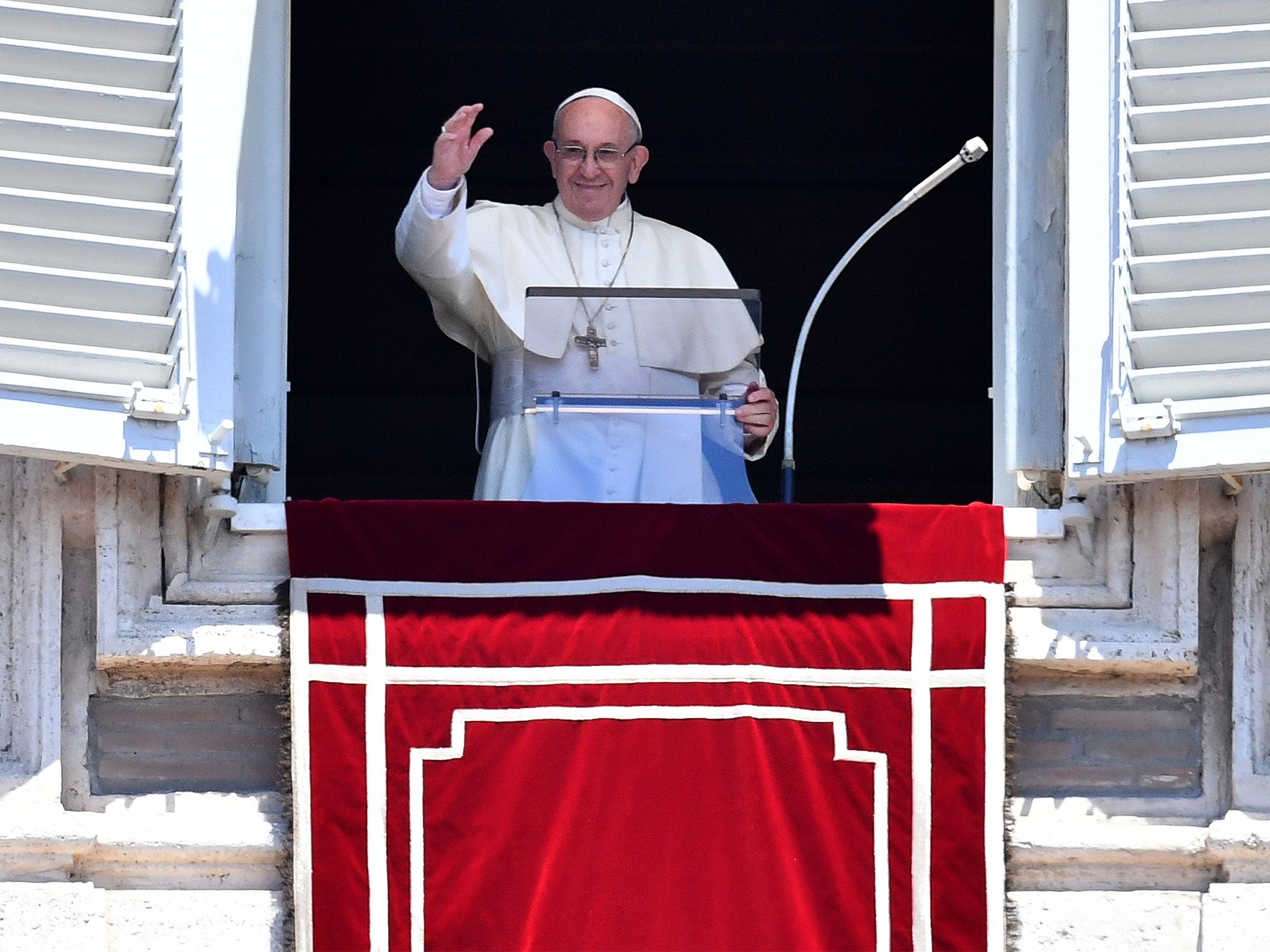Vatican officially uses term ‘LGBT’ for first time in its history
Campaigners praise signs Catholic Church is beginning to show 'respect,' but warn much work is ahead to achieve equality

The Vatican has recognised the term “LGBT” by using it in one of its official documents for the first time.
A paper examining the Catholic Church’s relationship with young people, published on Tuesday, said “some LGBT youth” were looking to “benefit from greater closeness and experience greater care by the church.”
The use of the term appears to mark a significant change in the Vatican’s attitude towards gay Catholics, which it has previously described as people with “homosexual inclinations” and “homosexuals.”
Grancis DeBernardo, executive director of the New Ways Ministry, which advocates equality for LGBT Catholics, welcomed the move, but said it did little to solve inequalities within the church.
“This change in language signals that church officials are beginning to understand that they have to treat LGBT people with simple respect by referring to them with more accurate terms,” he said in a statement.
“While these developments are welcome changes in the church’s style of discourse, it must be noted that there is nothing in the new document which indicates that the Vatican is, as yet, willing to entertain changes in church policy on LGBT issues.
“The furthest they have gone is to indicate a willingness to work towards being ‘a community open and welcoming towards all’.
“This pastoral approach is important, but the church’s outreach cannot end there.”
The document, known as an instrumentum laboris, was released ahead of the General Assembly of the Synod of Bishops, due to take place in October to discuss young people.
The report acknowledged the church’s traditional teachings on issues such as homosexuality, were “unpopular” among younger generations.
It also conceded the question of sexuality within the Catholic world needed to be discussed “more openly and without prejudice.”
“The Synod’s primary aim is to make the whole church aware of her important and not at all optional task of accompanying every young person, without exclusion, towards the joy of love,” Cardinal Lorenzo Baldisseri said at a press conference to introduce the document on Tuesday.
Despite the fact gay sex is still considered a sin by the Catholic Church, Pope Francis has made several statements suggesting he is accepting of LGBT people.
In 2013, he became the first pontiff to use the word “gay” when discussing sexuality, later telling reporters he was not in a position to judge a gay person who seeks god.
Last month, the Pope was reported to have told a gay man “God made you like this and loves you like this” and said his sexuality “did not matter”.
Join our commenting forum
Join thought-provoking conversations, follow other Independent readers and see their replies
Comments
Bookmark popover
Removed from bookmarks